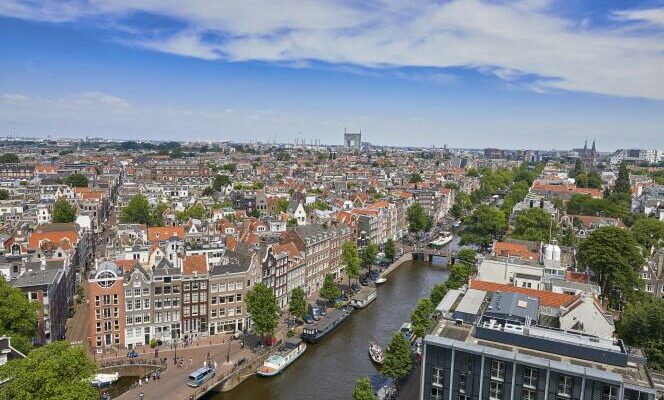It is a microcosm which develops on the fringes of tourist accommodation, but which is experiencing meteoric growth. In one year, the number of people registered on HomeExchange, one of the leading home exchange sites, jumped 50%. In total, 150,000 people, a third of whom are French, have registered their house or apartment on this platform, which is remunerated by asking its members for an annual contribution of 160 euros.
The system has developed so far without hindrance. But in the Netherlands and Scotland, public authorities are worried about seeing it spread out of control, fearing they are dealing with a future Airbnb. Unlike the American platform, HomeExchange does not involve the exchange of money: welcoming people into your home allows you to receive points (values “guest points”). A virtual currency that can be used to then go to a house or apartment.
But the municipality of Amsterdam believes that this form of transaction places the system in the box of tourist rentals. The HomeExchange platform lists 2,000 accommodations available in the Dutch metropolis, making it a major player in terms of accommodation offering. “Except that the accommodation is far from being free all the time! They are loaned two or three weeks a year”, retorts Emmanuel Arnaud, the director of HomeExchange. In total, this year, 3,900 groups or families came to Amsterdam through HomeExchange, or 71,000 “tourist nights” (total number of nights per person).
Controls and sanctions
From 1er March 2024, the city will apply restrictions similar to those concerning Airbnb. Users of HomeExchange and other exchange sites will have to register their accommodation on the municipality’s website, pay an annual permit (43 euros), limit the loan of their accommodation to thirty days per year, and report to the city as soon as when they receive people at their home. The city also prohibits using this system with a second home, and restricts the number of people accommodated per accommodation to a maximum of four (except families with more than two children). Controls, with associated sanctions, are planned from 2025.
“Amsterdam has been pursuing a policy for many years aimed at combating tourist rentals, as this has negative consequences on the quality of life in certain areas of the city”, explains Rory van den Bergh, spokesperson for the city of Amsterdam, which has deployed various actions to limit the impact of mass tourism. In 2023, for example, it launched a campaign on social networks (“ Stay away “) to discourage the arrival of visitors harmful to the tranquility of residents, namely groups of “men aged 18 to 35”, British in particular.
You have 40% of this article left to read. The rest is reserved for subscribers.
